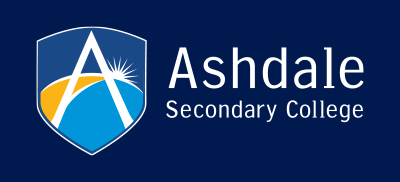Years 7 – 10 Music
Years 7 & 8 | All students in Years 7 and 8 undertake Music for one Term as a taster. Typical tasks include: performing, reading music, and aural and keyboard work.
Year 7 Classroom Music
In Year 7, students can apply their musical skills and knowledge when performing, composing and listening to music. They develop their aural skills and aural memory to identify, sing/play and transcribe music, making connections between sound and notation. They experiment with the elements of music to improvise and create simple compositions within given frameworks, using invented and conventional notation and music terminology to record and communicate musical ideas.
Students are given opportunities to participate in listening, analysis and score reading activities, focusing on the elements of music and critical stylistic features. Students practise, rehearse and perform a range of solo and ensemble music to develop technical skills and increase awareness of musical expression. As performers and audience members, they are encouraged to express their thoughts and feelings about music, identifying personal preferences and the reasons for them.
Music learning is aurally based and is integrated across all aspects of the written component of the subject through a selected context/s. The performance component reinforces and extends music learning and can be delivered in a different context from the written part. The elements of music are to be integrated across all areas of music learning appropriate to the setting.
Year 8 Classroom Music
In Year 8, students are given further opportunities to develop music skills and knowledge when performing, composing and listening to music. They continue to develop aural skills and aural memory to identify, sing/play and notate simple rhythmic and melodic patterns and chord progressions. They are provided with opportunities to create and refine music ideas by using the elements of music within given frameworks, imitating musical structures and styles. They use notation, terminology and technology to record and communicate musical ideas.
Students listen to and discuss music, using scores and music terminology to identify the use and purpose of music elements and key contextual and stylistic features. Students rehearse and perform solo and ensemble music, developing technical skills and expression. As performers and audience members, they make observations and express opinions about a range of music.
Music learning is aurally based and is integrated across all aspects of the written component of the subject through a selected context/s. The performance component reinforces and extends music learning and can be delivered in a different context from the written part. The elements of music are to be integrated across all areas of music learning appropriate to the setting.
Year 9
Music is an elective in Year 9 and runs for two periods a week for the whole year. Typical tasks include performance, composition and aural work. Students will continue to build on music skills and knowledge across various performing, composing, aural and listening activities. They continue to develop aural skills and aural memory to identify, sing/play and notate rhythmic and melodic phrases based on familiar scale forms and standard chord progressions in major and minor keys. Students use composition models and techniques, applying stylistic features and conventions to compose works in various styles. They listen to a variety of musical works, using scores and music terminology, to analyse and describe the use of the elements of music in structured activities. They examine similarities and differences between musical works and identify cultural, historical and stylistic features.
As soloists and ensemble members, they practise and perform a range of music to develop technical skills, control, and expression. As performers and audience members, they form opinions and preferences about music and the practices of others across a range of contexts to inform their music-making. Music learning is aurally based and is integrated across all aspects of the written component of the subject through a selected context/s. The performance component reinforces and extends music learning and can be delivered in a different context from the written part. The elements of music are to be integrated across all areas of music learning appropriate to the context.
Year 10 Music
In Year 10, students extend and consolidate music skills and knowledge across various performing, composing, aural and analysis activities. They continue to refine aural skills and aural memory to identify, sing/play and notate melodic and rhythmic dictations, chord changes and progressions. Students explore their emerging personal style and music ideas by combining and manipulating music elements and synthesising stylistic features and conventions when composing and arranging.
Students build on their understanding of meaning and interpretation in musical works, using aural and critical analysis skills to compare and evaluate a range of music, drawing upon knowledge of previously studied works. They use scores and music terminology to analyse and evaluate the use of the elements of music within a context, genre or style and identify and discuss social, cultural and historical factors.
Students practise and perform a more extensive range of solo and ensemble repertoire, developing and consolidating technical skills, expression and stylistic integrity. As performers and audience members, they are provided with opportunities to develop aesthetic awareness and make informed observations about various music and related social, cultural and ethical considerations. Music learning is aurally based and is integrated across all aspects of the written component of the subject through a selected context/s. The performance component reinforces and extends music learning and can be delivered in a different context from the written part. The elements of music are to be integrated across all areas of music learning as appropriate to the setting.
Senior School Music
CUA20615 Certificate II in Music Industry – RTO – 41549 Cosamp (2-year course)
This qualification reflects the role of individuals who perform a range of mainly routine tasks in the music industry, work under direct supervision, and use limited practical skills and fundamental operational knowledge in a defined context.

